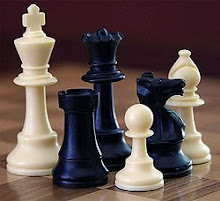When you think of the Internet the image that normally comes to mind is that of the graphics and flash of the World Wide Web. The WWW, though, is only one piece of a larger whole which we call the Internet. One of the very first elements of the Internet is Email. Broadly defined “E-mail (electronic mail) is the exchange of computer-stored messages by telecommunication” (source: http://searchmobilecomputing.techtarget.com/sDefinition/0,,sid40_gci212051,00.html) . At it’s most basic an email message is a text letter sent from one person to another.
Am email message has several advantages over its hard-copy ancestor. First, it is faster. The typical ‘snail mail’ message takes between one and three days to be delivered, while an email message is typically delivered within minutes if not seconds. Second, it is available anywhere you can get to an internet connection. If you are using a web-based email system (even AOL has a web interface) then you can access your messages or send a message from virtually anywhere in the world you can access the web. Snail mail can be sent from anywhere, but you can only receive it at designated locations. In other words, you can send someone a birthday card from any mailbox, but you can only get your incoming mail at your mailbox. Third, email is paperless and most systems will allow you to ‘attach’ documents of various kinds. You can send someone a multi-page spreadsheet or document by the push of a button. Fourth, email is (or can be) free, while snail mail requires paper, envelopes and stamps. With a significant amount of mail going out even the paid services become economically feasible.
Another feature of email that enhances it usefulness is the Distribution List. This is a way of designating a group of people who will receive a single email. For a mailing sent to every member of the church, for instance, in snail mail you would have to print a letter to each, fold them, stick them in envelopes and stamp them. To do the same thing with email you would write a single email message, enter the name of the distribution list (‘All Church Members’ or some other easily remembered name) and hit the ‘send’ button.
One last advantage of the email address. Since the world has moved inexorably into the “Age of Communication” more and more people have come to expect to be able to contact others in this way. Placing your email address on your corporate literature tells the world that you are not stuck in the past and that you are opening the doors. Psychologically it is a wise move, and it shows marketing savvy as well.
